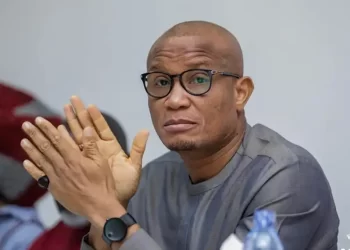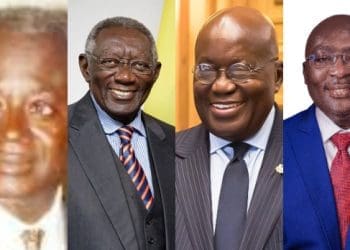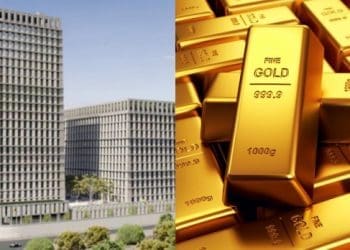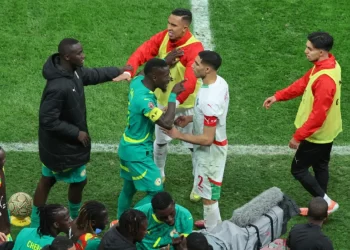On September 1, 2025, President John Dramani Mahama sacked Chief Justice Gertrude Araba Esaaba Sackey Torkornoo from office with immediate effect.
This followed a recommendation by a five-member investigative committee formed under Article 146(6) of Ghana’s 1992 Constitution, which had established that grounds for “stated misbehaviour” existed.
Under Article 146(9), the President was constitutionally bound to act on the committee’s recommendation.
Petitions and allegations
The saga began when three separate petitions were filed against Chief Justice Torkornoo earlier in 2025. The petitioners accused her of “stated misbehaviour”—a constitutional term referring to misconduct or actions unbecoming of her high office.
Five member committee
The committee tasked with investigating the petitions against the Chief Justice comprises individuals from various sectors and will be chaired by Justice Gabriel Pwamang.
- Justice Gabriel Scott Pwamang – Justice of the Supreme Court
- Justice Samuel Kwame Adibu-Asiedu – Justice of the Supreme Court
- Daniel Yaw Domelevo – Former Auditor-General
- Major Flora Bazwaanura Dalugo – Ghana Armed Forces
- Professor James Sefah Dzisah – Associate Professor, University of Ghana
Suspension
Her suspension earlier this year—on April 22, 2025—marked the first time in Ghana’s history that a sitting Chief Justice has been suspended under the 1992 Constitution.
President Mahama, after consulting the Council of State, determined that a prima facie case had been established and set up the committee for a formal probe.
Though the specific petitions were never publicly disclosed, media and expert commentary point to three major accusations:
Abuse of office—such as the alleged arrest of ACP Ayamga Yakubu Akolgo during court proceedings.
Fabrication of court records to cover up the arrest.
Improper judicial appointment procedures and politically sensitive venue choices for hearings.
Torkornoo fights battle
She declared that the ongoing impeachment proceedings against her are illegal, unconstitutional, and a threat to the rule of law in Ghana.
Addressing the press, she said “Every step of the removal process being undertaken against me is being done in a manner that breaks every rule on how justice is delivered in this country.”
She, however cited foure reasons for her removal.
1. She described the ongoing proceedings for her removal as not only unprecedented but also deeply troubling for Ghana’s democratic development.
2. On her second reason, Justice Gertrude Torkonoo raised alarm, stressing that the process extends beyond her as an individual and could have lasting consequences for Ghana’s democratic institutions.
3. Speaking on her third reason for removal, Torkonoo alleged serious violations of her constitutional rights in the ongoing proceedings surrounding her removal from office.
4. Torkornoo, speaking on her fourth reason, dismissed widespread suggestions that she should step down from her position in the face of ongoing proceedings aimed at her removal.
Defense for Torkornoo and international legal bodies
Justice Torkornoo has consistently described the allegations as baseless and politically motivated, and took legal action at the ECOWAS Court challenging her suspension.
Her defense brought in heavyweight figures from the judiciary: former Chief Justices Sophia Akuffo and Kwasi Anin-Yeboah, along with Justice Jones Dotse, testified on her behalf before the committee.
They argued that many of the actions under scrutiny were administrative norms, typical for the role of Chief Justice, and didn’t warrant removal.
Calls for the reinstatement of Torkornoo resurfaced after two influential global legal bodies — the Bar Council of England and Wales and the Commonwealth Lawyers Association (CLA) — issued a joint statement demanding her immediate reinstatement.
The final blow: Removal from office
Acting on the committee’s recommendation as required under Article 146(9), President Mahama formally removed Torkornoo from office on September 1, 2025.
The statement from the Presidency emphasised that the decision was not politically motivated but rather a constitutional necessity to preserve the integrity of Ghana’s judiciary.
A historic precedent
Chief Justice Torkornoo’s removal is unprecedented in Ghana’s democratic history. While past Chief Justices have retired or completed their terms, none has ever been sacked under the constitutional provisions for misconduct.
The development raises critical questions about judicial accountability, political influence, and the balance of powers in Ghana’s governance system.
What next?
With Torkornoo’s removal, attention now shifts to who will be appointed as her successor. The President is constitutionally mandated to appoint a new Chief Justice, subject to parliamentary approval.
Meanwhile, legal scholars, civil society groups, and political commentators continue to debate the long-term implications of this decision on judicial independence and Ghana’s democratic stability.
The question many ask, will the President still keep one of the nine justices of the Supreme Court who is also the most senior on the bench, Justice Baffoe-Bonnie, who was named to be acting take over as the next Chief Justice?












